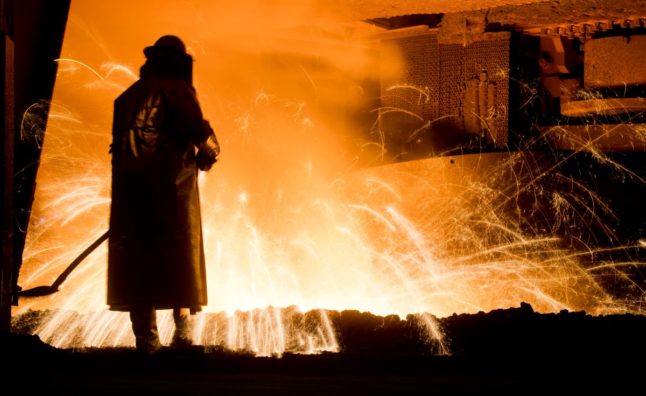Energy Minister Robert Habeck said four billion euros ($4.4 billion) would be up for grabs in the first round of the programme, with companies in energy-intensive sectors like glass, steel and paper-making invited to submit proposals for green technology projects that will slash their emissions.
“We are the first industrial country to introduce this,” Habeck told a press conference, calling the scheme “an innovative, new instrument” that would cut red tape, boost technological innovation and help Germany reach its climate targets.
The “climate protection contracts” will run for 15 years, Habeck said, with the government awarding subsidies to those firms that can decarbonise their production processes at the lowest cost.
The government has set aside a “mid-double-digit” billion euro amount for the programme overall, Habeck said. The next round of bidding will open in the autumn for 19 billion euros in subsidies.
READ ALSO: What is Germany’s ‘climate money’ plan and why is it delayed?
The scheme comes as Germany’s crucial manufacturing industry is suffering through a downturn, battered by inflation, weaker global demand and soaring energy costs after Russia’s war in Ukraine cut off access to cheap gas imports.
“We need this as stimulus for the economy and of course for climate protection,” Habeck said.
The scheme is expected to help reduce carbon emissions from industry by 350 million tonnes by 2045, according to the economy ministry.
Germany aims to be carbon neutral by 2045.
READ ALSO: Who can apply for Germany’s new renewable heating grants for homes?
Habeck said the subsidy programme was also “a good answer” to the green incentives offered by the United States’ Inflation Reduction Act, which have already prompted some German firms to mull moving production abroad.
“We need production in Germany, I want energy-intensive industries here and I want that production to be climate neutral,” he said.




 Please whitelist us to continue reading.
Please whitelist us to continue reading.
Member comments